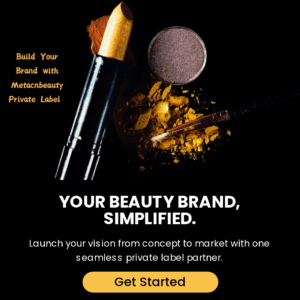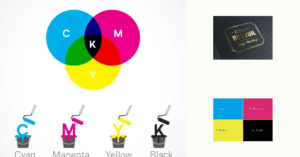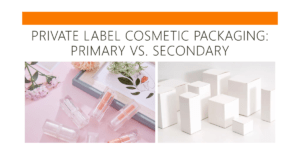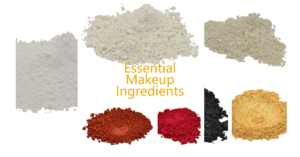Facial masks have become an essential part of skincare routines for many beauty-conscious consumers. With a wide range of options available, it can be challenging for retailers to select the best masks to offer their customers in 2024. In this ultimate guide, we will explore the growing demand for facial masks, why consumers love them, and provide three key tips to help businesses offer irresistible private label masks.
Key Takeaways:
- The facial mask market is projected to reach USD 11.45 billion by 2032, with a compound annual growth rate (CAGR) of 5.1% from 2022 to 2032.
- Facial masks are loved by consumers for their effectiveness, ease of use, and variety of options.
- Private Label Mask Materials
- Businesses can offer irresistible facial masks by understanding the different types of masks, considering the consumer’s skin type and concerns, and catering to various budget ranges.
- Sheet masks are a popular type of facial mask that provides concentrated ingredients to the skin.
- Choosing the right sheet mask involves considering your skin type and specific concerns.
Table of Contents
Will the facial mask market remain profitable in 2024?
The facial mask market has witnessed significant growth in recent years, and the trend is expected to continue in 2024. With a projected market value of USD 11.45 billion by 2032 and a compound annual growth rate (CAGR) of 5.1% from 2022 to 2032, the profitability of the facial mask market is undeniable.
In 2021, facial masks accounted for approximately 4.3% of the global skincare industry, and this percentage is expected to rise as consumer awareness of skincare increases and more people invest in related products. The growing demand for facial masks can be attributed to several factors, including the increasing focus on self-care, the desire for a youthful appearance, and the availability of a wide range of mask options.
One of the key drivers of the facial mask industry’s growth is online channels, particularly digital platforms. These platforms have played a significant role in driving consumer engagement and facilitating easy access to a variety of facial mask products. In fact, nearly 81% of facial mask purchases are made online, highlighting the importance of digital marketing strategies for businesses in this market.
The Asia Pacific region, with China leading the way, currently dominates the global facial mask market. However, Europe and North America are also prominent players in this industry, providing ample opportunities for businesses to tap into these markets and maximize their profitability.
The profitability of the facial mask market in 2024 is further reinforced by the growing consumer preference for skincare products that offer convenience, effectiveness, and targeted solutions. With consumers increasingly prioritizing self-care and wellness, facial masks provide an easy and accessible way to address various skin concerns and treat oneself to a rejuvenating experience.
To visually depict the projected growth of the facial mask market, refer to the chart below:
| Year | Market Value (USD billion) |
|---|---|
| 2021 | 4.3 |
| 2024 | 11.45 |
| 2032 | 11.45 |
As the chart illustrates, the market value of facial masks is expected to experience substantial growth by 2024 and beyond, securing the profitability of this industry in the coming years.
Why do consumers love facial masks?
Facial masks have gained significant popularity among consumers due to their effectiveness, ease of use, and variety. These skincare products offer solutions for various skincare concerns, catering to the diverse needs and preferences of beauty enthusiasts. Let’s explore why facial masks have become a favorite among consumers.
Effectiveness: Facial masks are designed to target specific skincare concerns, such as excess sebum, signs of aging, or dryness. They are formulated with active ingredients that provide visible results, leaving the skin looking refreshed, revitalized, and youthful.
Variety: The market offers a wide range of facial masks to suit different preferences and skin types. Here are some popular types:
- Sheet masks: Loved for their convenience and cooling effects, sheet masks are pre-soaked with serums and are perfect for on-the-go use.
- Clay masks: Known for their ability to absorb oil and dirt, clay masks provide a deep cleansing experience without leaving the skin overly dry.
- Peel-off masks: These masks offer deep cleansing benefits without the mess often associated with traditional clay masks, making them a popular choice among consumers.
- Hydrogel masks: Ideal for targeted treatments, hydrogel masks adhere closely to the skin, delivering concentrated ingredients for maximum effectiveness.
- Cream masks: Providing a luxurious and hydrating experience, cream masks are rich in nourishing ingredients, leaving the skin feeling moisturized and supple.
“Facial masks offer a variety of benefits, from convenience and targeted treatments to deep cleansing and hydration.”
The versatility and effectiveness of facial masks make them an essential part of skincare routines for many consumers. They offer a quick and convenient way to address specific concerns, promoting a healthy and radiant complexion.
The Rise of Self-Care
“In today’s fast-paced world, consumers are prioritizing self-care, and facial masks provide a pampering experience that promotes relaxation and well-being.”
With their soothing and rejuvenating properties, facial masks offer a moment of tranquility, allowing individuals to escape the stresses of daily life and indulge in a spa-like experience at home.
The popularity of facial masks aligns with the growing trend of self-care and the increasing focus on personal well-being. Consumers value the opportunity to take care of their skin and themselves, combining skincare benefits with a moment of self-indulgence.
Summary
In summary, consumers love facial masks for their effectiveness, ease of use, and the wide range of options available. Whether it’s a sheet mask for a quick pick-me-up or a clay mask for deep cleansing, facial masks provide a convenient and effective solution for various skincare concerns. The growing popularity of facial masks reflects consumers’ desire for self-care and pampering experiences in their skincare routines.
Introduction to Private Label Mask Materials
Facial masks are a common skincare product with various types and effects. Let’s explore the different materials used in facial masks and their advantages and disadvantages.
Types of Private Label Mask Materials

- Non-woven Fabric For Private Label Mask
- Feature: The texture of non-woven facial masks is relatively uniform and soft, does not produce fibrous debris, is strong and durable, and is also a better choice in terms of retaining moisture in the skin; high-end non-woven facial masks are even better than ordinary non-woven fabrics in terms of moisturizing and skin-fitting properties. It is 2.5~3 times that of a facial mask and is called a “super filament patch mask”.
- Advantages: Soft touch, strong moisturizing ability, and cost-effective.
- Disadvantages: Non-uniform sizes and imperfect fit.
- Best for: Dry and oily skin.
2. Crystal mask For Private Label Mask
- Feature: Crystal masks, made from crystal gels such as silica gel and agar, encapsulate various nutrients within a clear, gel-like substrate, creating a transparent, crystal-like appearance. These masks are designed to provide a close fit to the face, enhancing the absorption of the infused nutrients directly into the skin. The gel-based material helps retain moisture effectively, ensuring that active ingredients are delivered efficiently and the skin remains hydrated.
- Advantages: Enhanced nutrient delivery due to the close-fitting, gel-based design and high moisture retention helps maintain skin hydration and transparent and aesthetically pleasing appearance.
- Disadvantages: Potential for allergic reactions or irritation due to the gel substances used, Usually more expensive than traditional fabric-based masksLimited reuse capabilities; primarily single-use.
- Best for : Individuals seeking intense hydration and nutrient infusion, Suitable for all skin types, particularly beneficial for dehydrated or dull skin.
3. Cotton For Private Label Mask
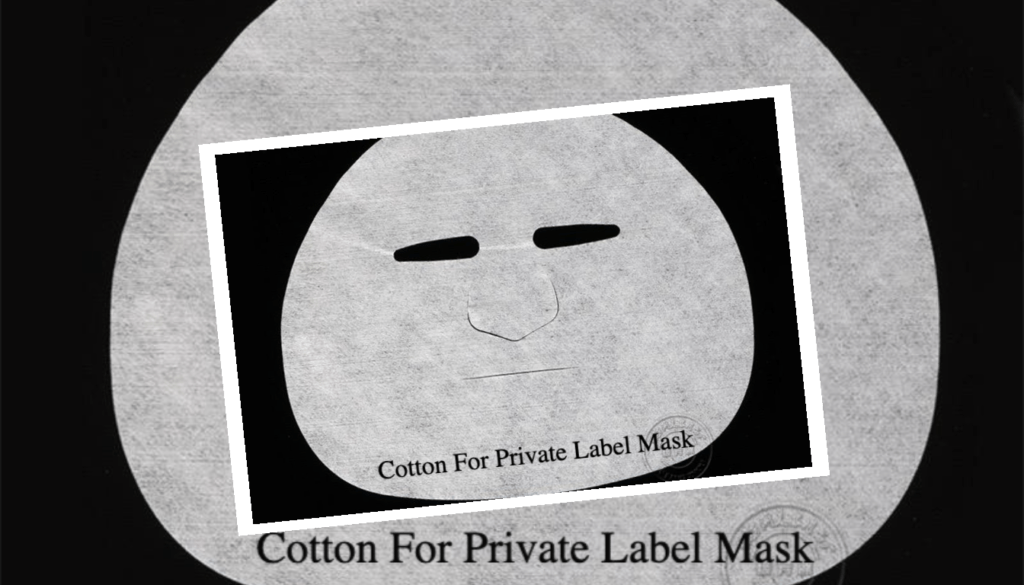
- Advantages: Low irritability, more environmentally friendly, and better absorption of serum due to larger internal gaps in the mask fabric.
- Disadvantages: Thinner mask paper.
- Best for: Sensitive skin.
4. Pulp For Private Label Mask
- Advantages: Strong water absorption and less irritation from raw materials.
- Disadvantages: Prone to tearing when stretched.
- Best for: Travel.
5. Biofiber For Private Label Mask
- Feature: The bio-fiber mask is composed predominantly of bacterial cellulose, accounting for more than 99.9% of its material. This natural biological fiber is derived from the macromolecules of various organisms, including nucleic acids, proteins, cellulose, and polysaccharides. Notable for their role in structural integrity, these fibers are akin to those found in silk, larvae, spider silk, and collagen fibers, offering unique properties for skin care.
- Advantages: Exceptionally pure and natural, minimizing the risk of skin irritations, Strong and durable, maintaining shape and effectiveness throughout use, and Superior moisture retention capabilities enhance the delivery of active ingredients.
- Disadvantages: Can be more expensive due to the complex manufacturing process, Heavier and less flexible than synthetic alternatives, which might affect comfort during use, Limited availability in the market due to niche production.
- Best for: Eco-conscious consumers looking for sustainable skincare options, Individuals with sensitive skin who require hypoallergenic materials,Those seeking deep hydration and a high efficacy in nutrient delivery.
6. Gel (Refreshing) For Private Label Mask
- Advantages: Fits facial contours closely with a refreshing gel texture.
- Disadvantages: Not suitable for long wear.
- Best for: Oily or combination skin.
7. Silk Mask For Private Label Mask

- Feature: The invisible silk mask is crafted from natural plant fibers, which impart exceptional elasticity and toughness to the material. This design enables the mask to absorb a substantial amount of essence while maintaining a close adherence to the contours of the face. Its unique lightweight and flexible nature allow for mobility during use, enabling wearers to engage in various activities without the need to lie down.
- Advantages: Made from natural silk similar to human skin structure, fits closely to the skin texture, and effectively permeates serum, High essence absorption due to the mask’s fibrous nature, A close and comfortable fit allows for freedom of movement during use, The thin, light material makes it nearly invisible on the face.
- Disadvantages: Lower capacity to hold serum, some may drip or stay in the pouch, relatively high price, average cost-effectiveness,May dry out quicker than thicker masks if exposed to air for prolonged periods,The thin material might tear more easily than other types of masks, Limited availability and variety compared to more common mask types.
8. Tencel Mask For Private Label Mask
- Advantages: Light and invisible like a second skin, compact material, excellent moisture absorption (can absorb up to 10 times its weight in serum), naturally pure, environmentally friendly and biodegradable.
- Based on: An upgraded version of silk masks.
9. Black Mask For Private Label Mask
- Ordinary non-woven fabric dyeing For Private Label Mask
Feature: Non-woven masks dyed black feature the same properties as undyed non-woven masks, with no enhanced functionalities such as special cleaning power or skin benefits. The dyeing process simply alters the color of the mask without improving its skin-care properties. A potential issue with dyed non-woven masks is the possibility of the dye pigments leaching into the skincare essence contained within the mask, which could affect its purity and performance.
Advantages:
- Provides aesthetic variation from standard white non-woven masks.
- Can appeal to consumers looking for visually distinctive skincare products.
Disadvantages:
- No additional skin benefits or enhanced efficacy compared to undyed masks.
- Risk of dye pigments contaminating the essence, possibly leading to skin irritation or other adverse effects.
- Potential environmental concerns associated with the disposal of dyed materials.
Best for:
- Consumers seeking a unique, stylish alternative to traditional white non-woven masks.
- Suitable for short-term use in settings where appearance is a priority, such as themed events or parties.
- Bamboo Charcoal Fiber Non-Woven Fabric For Private Label Mask
Feature: The bamboo charcoal fiber mask represents a popular choice among black masks in the market. This type of mask integrates bamboo charcoal fibers with other absorbent plant fibers, such as cotton and rayon, to create a non-woven fabric. Bamboo charcoal is known for its natural detoxifying properties, which help to purify the skin by absorbing impurities and excess oils.
Advantages:
- Natural detoxification and purification properties help cleanse the skin.
- High absorbency rate due to the combination of bamboo charcoal with other plant fibers.
- Helps regulate facial oil and reduce acne breakouts.
Disadvantages:
- May be less soft compared to masks made solely from finer fibers like pure cotton or silk.
- Limited stretchability, which can affect the fit and comfort on the face.
- The dark color of the mask might not appeal to all users.
Best for:
- Individuals with oily or acne-prone skin due to its oil-absorbing properties.
- Those looking for a natural option to help purify and detoxify their skin.
- Consumers interested in using skincare products that incorporate natural and sustainable materials.
- Binchotan Carbon Fiber Nonwoven Fabric For Private Label Mask
Feature: Binchotan carbon fiber nonwoven fabric is crafted from high-quality woods like beech, which are processed at extremely high temperatures, typically calcining at 1200 to 1400 degrees Celsius. This process carbonizes the wood into Binchotan, a type of activated charcoal known for its purity and durability. When integrated into nonwoven fabric, Binchotan enhances the material with properties beneficial for skincare, particularly in adsorbing impurities and neutralizing odors.
Advantages:
- Superior impurity absorption capabilities, ideal for detoxifying the skin.
- Helps to reduce unwanted odors, making it suitable for use in both skincare and textile applications.
- Durable and retains its structure even after multiple uses in fabric form.
Disadvantages:
- Higher cost of production due to the use of high-quality wood and the extensive processing required.
- Stiffness of the fabric may reduce comfort when used in facial masks.
- Limited availability due to the specialized production process.
Best for:
- Individuals seeking high-performance skincare products to detoxify and purify the skin.
- Those in need of a mask that not only cleanses but also neutralizes odors effectively.
- Consumers who prefer products made from natural and sustainably sourced materials.
Categories of Private Label Mask
Facial masks can be categorized based on their material and effects:
Private Label Mask By Material:
- Private Label Mask-Cloth Masks
- Private Label Mask-Silk Masks
- Private Label Mask-Mud Masks
- Private Label Mask-Cream Masks
- Private Label Mask-No-rinse Masks
- Private Label Mask-Powder Masks
Private Label Mask By Effect:
- Private Label Mask-Hydrating Masks
- Private Label Mask-Whitening Masks
- Private Label Mask-Soothing Masks
- Private Label Mask-Anti-aging and Anti-wrinkle Masks
Analysis of Private Label Mask Materials
The quality of the mask fabric can significantly affect both the skincare experience and its effectiveness. Here’s an analysis focusing on absorption, skin affinity, texture, fit, and potential for irritation:
- Private Label Mask Materials–Cotton Paper: Safe and non-irritating, preferred by many pharmaceutical brands.
- Private Label Mask Materials–Tencel: Known for its natural and soft texture but has poor cutting and lower absorption efficiency.
- Private Label Mask Materials–Silk: Affordable and thin, potentially retains chemical residues.
- Private Label Mask Materials–Dupont Tencel: Very thin and clear texture, less likely to cause irritation but slightly rough and poorly fitting.
- Private Label Mask Materials–Microfiber: Imported from Japan, ultra-soft, antibacterial, and offers a snug fit.
Conclusion
When choosing a facial mask, considering the material is crucial as it directly influences the mask’s effectiveness and your overall skincare experience. From the luxurious feel of microfiber to the environmental benefits of Tencel, each material offers unique benefits and limitations.
Three tips to help businesses offer irresistible facial masks in 2024
As the demand for facial masks continues to soar, businesses need to stay ahead of the curve and provide customers with irresistible options. Here are three essential tips to help retailers choose and offer facial masks that will capture the attention of consumers in 2024:
1. Know the Different Types of Face Masks
Understanding the various types of face masks available in the market is crucial for businesses looking to provide the best options for their target consumers. Here are some popular types of face masks:
| Type of Face Mask | Description |
|---|---|
| Sheet Masks | These thin fabric or paper masks are soaked in a serum and offer a concentrated dose of nutrients and hydration. |
| Clay Masks | These masks contain clay or mud that helps absorb excess oil and impurities from the skin. |
| Peel-off Masks | These masks dry on the skin and can be peeled off, removing dead skin cells and unclogging pores. |
| Hydrogels | These gel-like masks provide deep hydration and adhere closely to the skin for maximum absorption. |
| Cream Masks | These masks have a creamy texture and offer moisturizing and nourishing benefits to the skin. |
| Sleep Masks | These overnight masks are applied before bed and work their magic while you sleep, providing intensive hydration and rejuvenation. |
2. Factor in the Consumer’s Skin Type and Concern
When selecting facial masks to offer, it’s important to consider the consumer’s skin type and specific concerns. Different ingredients and formulations work best for different skin types. Here are some recommendations:
For dry skin, masks with hyaluronic acid are recommended. Aging skin can benefit from masks containing vitamin C. Salicylic acid is suitable for acne-prone skin. Niacinamide is effective for redness-prone skin, while masks with kojic acid or soy can address dark spots or pigmentation issues.
3. Understand the Target Consumer’s Budget
Providing options at different price points is essential to cater to customers with varying budgets. However, focusing solely on the price is not enough. It’s crucial to offer masks that deliver results and provide value for money. Affordable options that are effective and deliver visible benefits will be highly valued by discerning consumers.
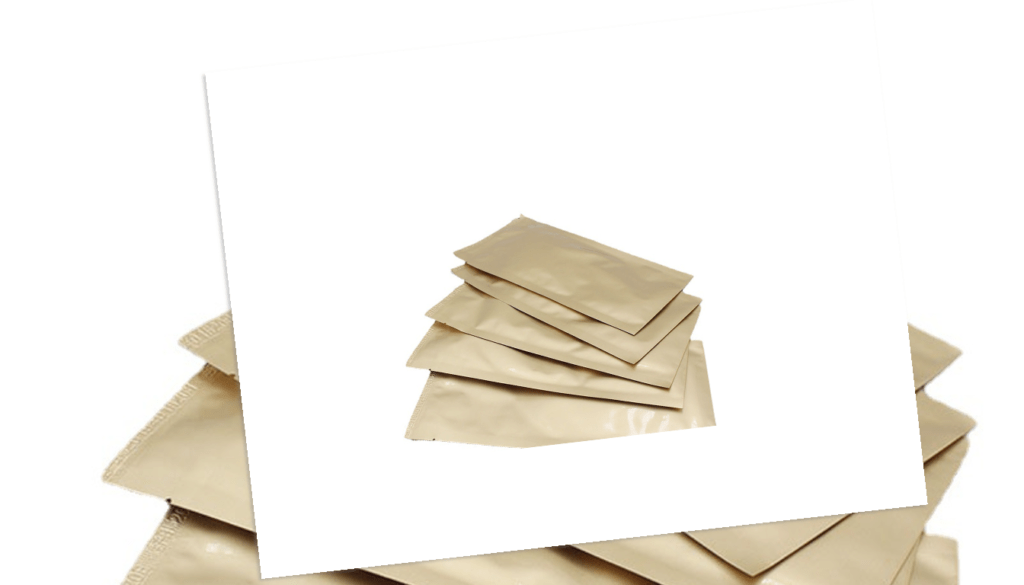
By implementing these three tips, businesses can confidently offer a range of irresistible facial masks that cater to different skin types, concerns, and budgets. This strategic approach will help retailers maximize their profits and meet the evolving demands of consumers in 2024.
Know the different types of face masks
When it comes to face masks, there is no shortage of options to choose from. Each type offers unique benefits and caters to different skincare needs. Understanding the various types can help you select the right mask for your skin concerns. Here are some popular types of face masks:
Sheet masks
Sheet masks are thin fabric or paper masks soaked in a serum containing concentrated ingredients. They are easy to use and provide intense hydration while delivering targeted treatments to the skin. Sheet masks are suitable for all skin types and are a favorite among beauty enthusiasts.
Clay masks
Clay masks are known for their ability to absorb excess oil and draw out impurities from the skin. They are particularly beneficial for oily and acne-prone skin types. Clay masks can help unclog pores, reduce the appearance of blackheads, and leave the skin feeling refreshed.
Peel-off masks
Peel-off masks provide a deep cleansing experience without the mess of traditional clay masks. These masks typically start as a gel but dry into a peelable layer. When removed, they take away dead skin cells, dirt, and other impurities, leaving the skin smoother and brighter.
Hydrogel masks
Hydrogel masks are made from a gel-like material infused with hydrating ingredients. They adhere to the skin firmly and provide a cooling sensation. Hydrogel masks are great for delivering intense moisture and targeting specific skin concerns, such as dryness or dullness.
Cream masks
Cream masks are rich and luxurious, offering deep hydration and nourishment to the skin. These masks often contain emollients and oils that help moisturize and soothe dry or dehydrated skin. Cream masks are perfect for those seeking a pampering and indulgent skincare experience.
Sleep masks
Sleep masks, also known as overnight masks, are applied before bedtime and left on the skin overnight. They work while you sleep, providing continuous hydration, brightening effects, and other targeted treatments. Sleep masks are a convenient option for those with busy schedules.
As you can see, there are several types of face masks available to suit different skin types and concerns. Whether you’re looking for a quick hydration boost or a deep cleansing treatment, incorporating face masks into your skincare routine can enhance your overall complexion. Now that you know the different types, you can choose the one that best fits your needs and enjoy the benefits of a refreshed and radiant-looking skin.
Factor in the consumer’s skin type and concern
Choosing the right facial mask involves considering the consumer’s skin type and specific concerns. Different skin types require different ingredients and formulations to address their specific needs. By understanding these factors, businesses can offer masks that cater to a diverse range of customers in 2024.
Here are some recommendations for addressing different skin types and concerns:
For Dry Skin:
Masks with hyaluronic acid are recommended for dry skin. Hyaluronic acid is a powerful humectant that attracts and retains moisture, helping to hydrate and plump the skin.
For Aging Skin:
Masks containing vitamin C can help combat the signs of aging. Vitamin C is known for its antioxidant properties, which can help brighten the skin, reduce hyperpigmentation, and promote collagen production.
For Acne-Prone Skin:
Salicylic acid is a common ingredient in masks designed for acne-prone skin. It has exfoliating properties and can help unclog pores, reduce inflammation, and control excess oil production.
For Redness-Prone Skin:
Masks with niacinamide can be effective for redness-prone skin. Niacinamide has soothing and anti-inflammatory properties that can help calm irritated skin and reduce redness.
For Dark Spots or Pigmentation Issues:
Masks with kojic acid or soy can address dark spots and pigmentation issues. These ingredients have brightening properties that can help even out the skin tone and reduce the appearance of dark spots.
By considering the consumer’s skin type and concern, businesses can offer masks formulated with the right ingredients to provide targeted solutions and optimal results.
| Skin Type | Recommended Facial Mask Ingredients |
|---|---|
| Dry Skin | Hyaluronic acid |
| Aging Skin | Vitamin C |
| Acne-Prone Skin | Salicylic acid |
| Redness-Prone Skin | Niacinamide |
| Dark Spots or Pigmentation Issues | Kojic acid or soy |
Understand the target’s budget
When offering facial masks to consumers, it’s crucial to consider their varying budgets. To meet the needs of different customers, it’s important to offer facial masks at different price points. However, the focus should not solely be on selling the most expensive options but rather on providing effective and value-driven products. Customers appreciate masks that deliver results without breaking the bank.
By offering affordable facial masks, retailers can ensure that they cater to a wider audience and make skincare accessible to all. Many consumers are looking for quality products that are suitable for their budget, and by offering affordable options, businesses can tap into this target consumer group. It’s crucial to strike a balance between price and quality, ensuring that the masks are both affordable and effective in addressing various skincare concerns.
Creating a range of affordable facial masks also allows businesses to build trust and loyalty with customers. Offering value-driven products that deliver results at an affordable price enhances the customer experience and encourages repeat purchases. It also showcases the brand’s commitment to providing accessible skincare solutions to a diverse range of individuals.
Moreover, retailers can leverage the affordability of facial masks as a unique selling point. By highlighting the value for money that customers can enjoy, businesses can differentiate themselves from competitors and attract price-conscious shoppers. This can be done through strategic marketing campaigns that emphasize the affordability, quality, and effectiveness of the facial masks.
In summary, understanding the target consumer’s budget is essential when offering facial masks. By providing affordable options without compromising on quality, businesses can cater to a wider audience and build strong customer relationships. Affordable facial masks not only make skincare accessible to all but also serve as a unique selling proposition, attracting price-conscious shoppers.
Private Label Mask -The Basics of Sheet Masks
Sheet masks have become a popular addition to skincare routines, offering a convenient and effective way to nourish and hydrate the skin. These thin fabric or paper masks are soaked in a serum containing various concentrated ingredients that provide a range of benefits for the skin.
Concentrated Ingredients for Powerful Results
Sheet masks are known for delivering a concentrated dose of nutrients and hydration directly to the skin. The serum in the mask is packed with active ingredients that target specific skincare concerns, such as soothing irritated skin, providing intense hydration, or delivering treatments for specific skin issues.
“Sheet masks offer a convenient and effective way to pamper your skin with concentrated ingredients.” – Dr. Emily Davis, Dermatologist
Dermatologists often recommend sheet masks as a complementary part of a healthy skincare routine due to their ability to deliver potent ingredients directly to the skin. Whether you’re looking to calm redness, plump and hydrate, or tackle specific skin concerns, there’s a sheet mask available to address your needs.
Suitable for All Skin Types
One of the advantages of sheet masks is that they are typically suitable for all skin types. Whether you have dry, oily, sensitive, or normal skin, there’s a sheet mask that can work for you. However, it’s always important to check the product’s label or consult with a dermatologist if you have any specific concerns or allergies.
Sheet masks are designed to adhere closely to the skin, allowing the ingredients to penetrate deeply and effectively. The mask’s close contact provides a barrier that prevents the ingredients from evaporating quickly, ensuring maximum absorption and effectiveness. Learn more about the Skin Type
A Convenient Addition to Your Skincare Routine
Using a sheet mask is a simple and relaxing process that can easily be incorporated into your skincare routine. After cleansing your face, apply the sheet mask and gently press it onto your skin, ensuring it adheres to all areas. Leave the mask on for the recommended time, usually around 15-20 minutes, allowing the ingredients to work their magic.
While the mask is on, take a moment to relax and pamper yourself. You can use this time to meditate, read a book, or simply unwind. After removing the mask, gently massage any remaining serum into your skin, allowing it to fully absorb. Finish off by applying your regular skincare products, such as an eye cream and moisturizer, for a complete and nourishing routine.
Sheet masks offer a luxurious and effective skincare experience, providing a concentrated dose of ingredients to revitalize and rejuvenate your skin. Incorporating sheet masks into your routine can help enhance your skincare results while providing a moment of relaxation and self-care.
How to Choose the Right Sheet Mask
When it comes to choosing the right sheet mask, it’s important to consider your skin type and specific concerns. Different masks are formulated with specific ingredients to address various skin issues and provide targeted benefits.
Hydrating Masks for Normal to Dry Skin
If you have normal to dry skin, choosing a sheet mask that focuses on hydration is key. Look for masks that contain ingredients like hyaluronic acid and glycerin, which can replenish moisture and leave your skin feeling nourished and supple.
Cautious Approach for Oily or Combination Skin
If you have oily or combination skin, it’s important to be cautious when choosing a sheet mask. Some masks may contain ingredients that can potentially aggravate your skin or clog pores. Opt for oil-free or non-comedogenic masks that can help balance oil production without causing additional breakouts.
Choosing Soothing Masks for Sensitive Skin
Sensitive skin requires extra care and attention. Choosing sheet masks that are soothing and non-fragranced can help minimize the risk of irritation. Look for masks with ingredients like aloe, chamomile, allantoin, calendula, or green tea. These ingredients can help calm and protect sensitive skin, leaving it feeling refreshed and rejuvenated.
Brightening Masks for Uneven Skin Tones
If you’re looking to reduce uneven skin tones and achieve a brighter complexion, choosing a sheet mask that focuses on brightening is ideal. Look for masks that contain ingredients like vitamin C, niacinamide, or arbutin. These ingredients can help fade dark spots, promote a more even skin tone, and provide a brighter, radiant look.
Anti-Aging Masks for Youthful Skin
To combat the signs of aging, choosing a sheet mask with anti-aging properties can be beneficial. Look for masks that contain ingredients like retinol, peptides, or collagen. These ingredients can help improve the appearance of fine lines and wrinkles, promote firmness, and restore a more youthful-looking complexion.
Addressing Acne-Prone Skin with the Right Masks
Acne-prone skin requires targeted care to help reduce breakouts and achieve a clearer complexion. Choosing sheet masks that contain ingredients like aloe vera, charcoal, or salicylic acid can help purify the skin, control excess oil, and reduce the appearance of blemishes. These ingredients can promote a healthier, acne-free complexion.
By considering your skin type and specific concerns, you can make an informed decision when choosing a sheet mask. Whether you’re looking for hydration, soothing, brightening, anti-aging, or acne-fighting benefits, there is a sheet mask out there to suit your needs. Incorporating the right sheet mask into your skincare routine can help you achieve the healthy, glowing skin you desire.
Using a Sheet Mask Like a Pro
Proper sheet mask application is key to maximizing its benefits and achieving radiant, healthy-looking skin. Follow this step-by-step guide to make the most out of your skincare routine:
- Cleanse: Start by thoroughly cleansing your face to remove any dirt, oil, or makeup residue. This step sets the foundation for effective sheet mask application.
- Toner: Apply a toner to balance your skin’s pH levels and prep it for better absorption of the sheet mask’s ingredients.
- Apply the sheet mask: Carefully unfold the sheet mask and align it with your facial contours. Gently press it onto your skin, ensuring it adheres well and covers your entire face. Smooth out any air bubbles or wrinkles for optimal contact.
- Wait: Leave the sheet mask on for the recommended duration, usually around 20 minutes. This gives the ingredients ample time to penetrate your skin and deliver their nourishing benefits.
- Remove and pat: Remove the sheet mask and gently pat any remaining serum into your skin. Avoid rinsing off the serum as it allows the nutrients to continue benefiting your skin.
- Complete your skincare routine: Follow up with your regular skincare routine. Apply a serum, eye cream, and moisturizer to lock in the benefits of the sheet mask and provide additional hydration and nourishment.
This step-by-step guide ensures that you’re giving your skin the proper care it deserves during your skincare routine. By incorporating sheet masks effectively, you can enjoy the full benefits, including hydrated, revitalized, and glowing skin.
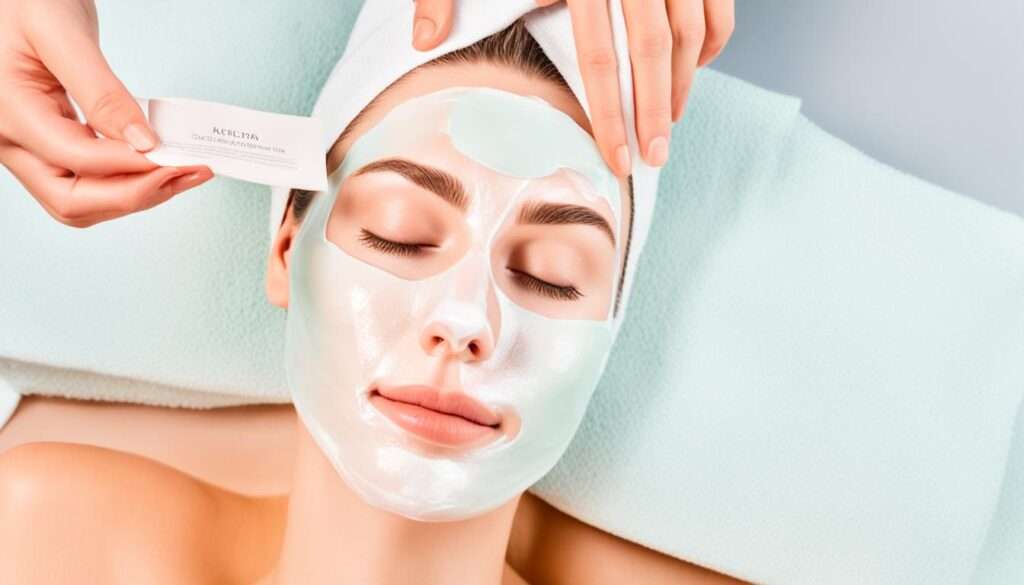
“Sheet masks are a fantastic addition to any skincare routine. When used correctly, they can provide a spa-like experience and address various skin concerns. Just remember to always cleanse, tone, apply, wait, remove, and pat for the best results!”
Conclusion
Facial masks have emerged as a popular and effective skincare solution for consumers looking to enhance their skincare routine. With a wide variety of options available, businesses have the opportunity to cater to different skin types, address specific concerns, and accommodate various budgets. By understanding the market demand and consumer preferences, retailers can offer irresistible private label masks to maximize profits in the facial mask industry in 2024 and beyond.
Integrating facial masks into skincare routines not only provides consumers with a greater variety of products to choose from but also offers the convenience of targeted treatments. From sheet masks to clay masks, peel-off masks to hydrogels, consumers can enjoy the benefits of different mask types and their concentrated ingredients. The versatility and effectiveness of facial masks allow individuals to customize their skincare routine according to their unique needs and preferences.
With facial masks becoming a staple in skincare routines, the industry is poised for continued growth and success. By meeting the demand for variety and convenience, businesses can forge successful paths in the ever-evolving world of skincare. By prioritizing the incorporation of facial masks into their product offerings, retailers can connect with customers and provide them with the skincare solutions they desire. As consumers continue to prioritize self-care and investment in their appearance, facial masks are set to play a vital role.
FAQ
What are the different types of face masks?
The different types of face masks include sheet masks, clay masks, peel-off masks, hydrogels, cream masks, and sleep masks. Each type offers unique benefits and is suitable for different skin concerns.
What are the different types of Private Label Mask Cloth
No matter what brand of patch mask is on the market, the following 9 types of mask fabrics will be used.
Non-woven facial mask, silk mask cloth, tencel mask cloth, bio-fiber membrane cloth, jam fiber membrane cloth, deep-sea bio-fiber membrane cloth, bionic mask cloth, binchotan charcoal mask cloth, graphene mask cloth
How do I choose the right facial mask for my skin type and concern?
To choose the right facial mask, consider your skin type and specific concerns. For example, hydrating masks with ingredients like hyaluronic acid and glycerin are suitable for normal to dry skin, while masks with salicylic acid are recommended for acne-prone skin. It’s important to understand your skin’s needs before selecting a facial mask.
How can businesses offer irresistible facial masks in 2024?
Businesses can offer irresistible facial masks by understanding market demand, consumer preferences, and offering private label masks at different price points. It’s important to provide effective and value-driven products that cater to customers’ varying budgets and skincare needs.
What are the benefits of using sheet masks?
Sheet masks offer a concentrated dose of nutrients and hydration to the skin. They are easy to use and suitable for all skin types. Sheet masks can provide various benefits, such as calming irritated skin, providing hydration, and delivering specific treatments to the skin.
How do I properly use a sheet mask?
To use a sheet mask properly, cleanse your skin, apply toner, carefully apply the sheet mask, wait for the recommended duration (usually 20 minutes), remove the mask, and gently pat in the remaining serum. It’s important not to wash your face after removing the mask to allow the nutrients to continue benefiting the skin. Finish your skincare routine by applying serum, eye cream, and moisturizer.
Why are facial masks popular among consumers?
Facial masks are popular among consumers due to their effectiveness, ease of use, and variety. They offer solutions for various skincare concerns, from excess sebum to signs of aging. Facial masks provide convenience, targeted treatments, and a luxurious and hydrating experience for beauty enthusiasts.
